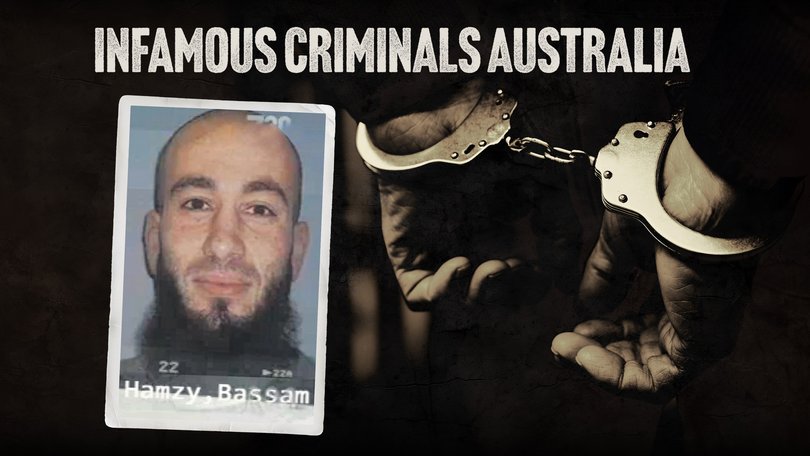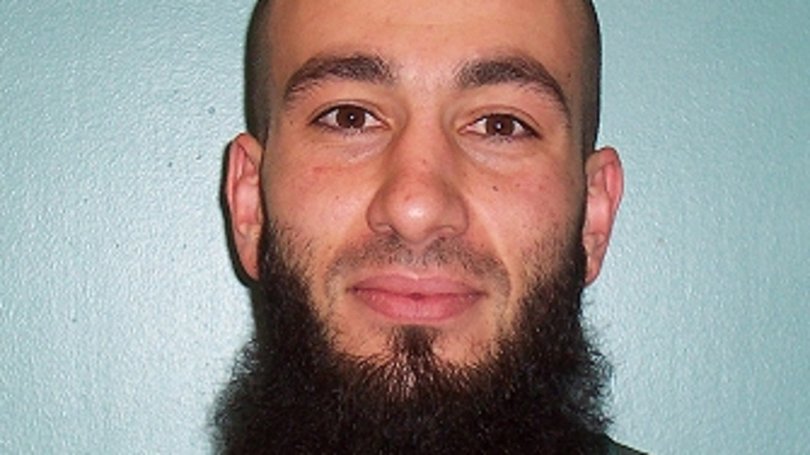Infamous criminals Australia: Murderous Brothers For Life boss Bassam Hamzy ‘a product of Australian culture’
A former detective has conceded that one of the country’s most notorious underworld criminals might not be a nice guy but is a ‘survivor’ whose ‘badness’ is derived from Australian gangster culture.

A former detective has conceded that one of the country’s most notorious underworld criminals might not be a nice guy but is a “survivor” whose “badness” is derived from Australian gangster culture.
Former New South Wales detective Michael Kennedy said crime boss Bassam Hamzy — who is serving sentences for a string of offences including murder, conspiracy to murder and commercial drug supply — is simply “a product of the environment that he grew up in”.
“He’s a product of someone who started with nothing, his parents had nothing, and he wanted something,” he said.
Sign up to The Nightly's newsletters.
Get the first look at the digital newspaper, curated daily stories and breaking headlines delivered to your inbox.
By continuing you agree to our Terms and Privacy Policy.“He’s a product of Australian culture, with regards to someone who comes from a multicultural background, and what he’s done has been to survive.
“He’s a product of a capitalist system that allows organised crime to thrive and create business opportunities for lawyers, bankers and politicians so it’s very politicised.”
The Nightly is taking a fresh look inside the crimes and minds of Australia’s more recent infamous criminals, whose crimes have shocked the nation and — in Hamzy’s case — continue to make headlines.
Hamzy, who is serving a 40-year prison sentence, is among this new breed of notorious inmates.
He is the son of Lebanese immigrants who moved to Australia in the 70s during the Lebanese civil war.
It has been revealed in court that he grew up in a dysfunctional family environment. His father was jailed when he was 12 or 13 years old and then “hit the streets” selling drugs.

Dr Kennedy, who spent almost two decades with NSW Police, had “dealings” with the Hamzy family “way back in the late 80s”.
“The Hamzys are one of many prominent families in the criminal world,” he said.
“They were very poor and they had nothing. They’re Lebanese and Muslim, but mostly they’re Australian.
“They engaged in criminal activity because they weren’t able to do anything else and they never wanted to go back to the levels of miserable poverty they came from.”
Dr Kennedy — who worked in the major crime squad, bureau of crime intelligence and the NSW Crime Commission before leaving the force — said Hamzy comes from a “career criminal family”.
“The extended family played a big role in it ... these extended families are like the Mafia,” he said. “This is Australian gangster culture.
“Most of their badness is not associated with their Arabic or their Muslim culture. It’s very much Australian culture.”
Hamzy, an underworld power player, has been in jail since 1999, when he was taken into custody for fatally shooting teenage Kris Toumazis outside the Mr Goodbar nightclub in Darlinghurst in 1998. Aged 18 at the time, Hamzy was jailed for 21 years.
But that murder was just the start of his life of crime.
Since then, the 46-year-old has become an influential criminal power player despite being locked up in some of Australia’s most secure jails.
By 2008, the “extremely high-risk prisoner” was running a criminal operation from inside Lithgow jail, after obtaining a secret phone.
Around 2010 Hamzy, a devout Muslim, established one of Sydney’s most notorious crime gangs, Brothers For Life.
The underworld identity has been convicted of running a drug syndicate from behind bars, supplying a commercial quantity of methamphetamine in late 2017 and early 2018, and knowingly dealing with the proceeds of crime from Supermax via calls to his former lawyer, who has since died.
Dr Kennedy, now an applied criminologist, said Hamzy was like “a very low level version” of an Ibrahim, in that he is business-minded like the Ibrahims — another underworld family — but not as high-profile.
“He’s a career criminal. For him, the ends justify the means,” he said. “He’s behaving like (Melbourne gangland killer) Carl Williams and he is much more discreet.
“I don’t suggest he’s a nice person. I suggest that he’s a meat eater. He’s very much a predator.
“But if he was an Anglo, we’d say, ‘Oh, what a great businessman’.”
Hamzy has multiple court matters on foot and has launched multiple civil lawsuits from his prison cell.
Last year Hamzy launched a civil case against the Commissioner of Corrective Services over the “inhumane” conditions at Goulburn Supermax.
And last November he lodged a claim against the State of NSW, its police force and other law enforcement agencies for allegedly failing to prevent his brother’s assassination, despite knowing about the murder plot for more than a week.
He recently launched a civil case against NSW Corrective Services for refusing to give him access to a laptop so he could prepare for court cases. In the end, he got the laptop.

In 2020 he filed proceedings against then-Corrective Services commissioner Peter Severin in the NSW Supreme Court claiming he was being denied religious freedom because he was prohibited from speaking in Arabic in jail, among other alleged deprivations.
And in 2009, he filed proceedings against then-commissioner Ron Woodham, claiming that conditions in the prison amounted to a violation of “fundamental human rights”.
Hamzy has spent time in various prisons but now lives a solitary life inside the high risk inmate unit at Goulburn’s High Risk Management Correctional Centre, commonly known as “Supermax”, pictured above.
He is jailed alongside some of Australia’s worst offenders, including many convicted of terror offences, but reportedly spends up to 20 hours a day alone with limited access to other inmates.
He has a TV in his room, receives meals through a hatch and is handcuffed and accompanied by at least three guards whenever he steps out of his cell.
Behind bars, Hamzy is the target of frequent attacks.
Last year he was stabbed and bashed by another inmate.
The year before, he was cut in a stabbing attack, in the jail exercise yard.
In 2019, he was attacked by a rival gang member during a wild brawl.

From his cell inside Goulburn’s Supermax, Hamzy has applied himself to expanding his business portfolio.
His ventures reportedly include building resorts, importing sneakers and exotic fruit, distributing bathroom accessories, property development and investing in nightclubs, bottled water and agriculture.
Mr Severin — who passed away in August — once described Hamzy as being “very bright” and “very manipulative”.
“(He is) somebody who obviously is determined to not only beat the system, but to continue committing a crime or having an influence outside the corrections system while he’s serving a sentence,” he told the ABC.
Dr Kennedy, an adjunct professor at the University of Western Sydney and a lecturer at the University of New England, said Hamzy is “strategic and entrepreneurial”.
“He speaks three languages and understands three cultures,” he said.
“He knows how to organise business. He knows how to control the markets. He knows how to build up a customer base.
“He’s extremely on to it but he’s got a dark side.
“A lot of that comes from his association with outlawed motorcycle gangs.”
Dr Kennedy said Hamzy will “do all right” when he is eventually released from prison, sometime after 2038.
“I think he’d be independently wealthy. But if he’s not, members of his family would be able to support him,” he said.
“If he goes back to Lebanon, he’ll have a very decent life.
“I think he’ll do all right when he gets out, one way or the other. But the thing is, he’s part of a very violent system.”
The 73-year-old said that upon release, Hamzy will likely be subject to strict parole conditions and will possibly wear an ankle bracelet.
“He’s a survivor by and large, and he’s smart enough to reinvent himself when he gets out,” he said.
“It’s hard to know if he’ll be safe on the outside.
“No matter what happens, I think he’s going to have to be on his guard for the rest of his life.”

